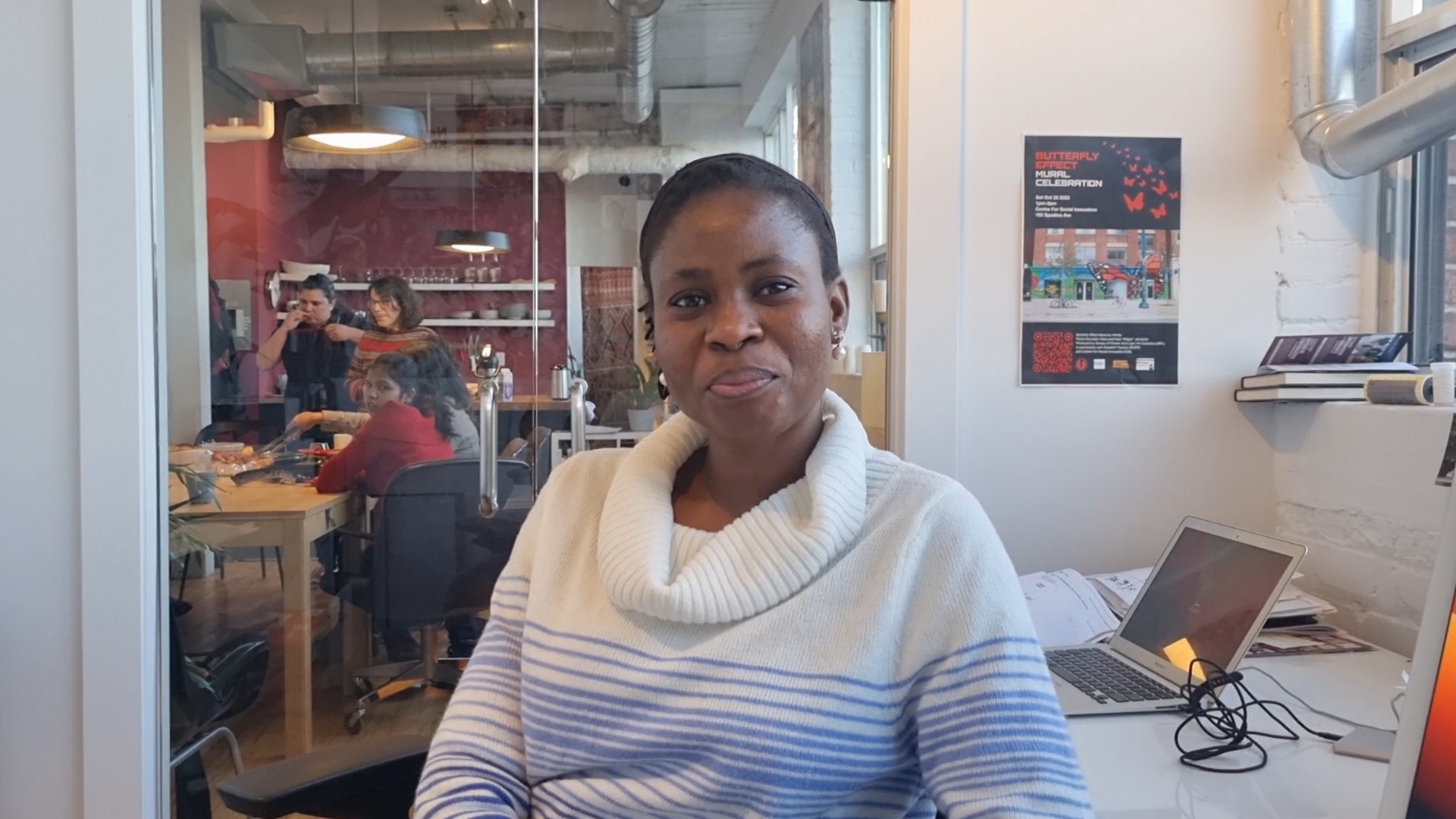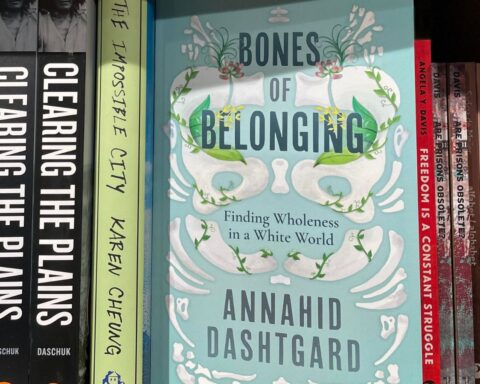Pragati Mhasalkar came to Canada from India with her husband in 2017. A stock market analyst by trade, after realizing she would need to obtain a license to continue her profession in Canada, she switched to IT, working contract jobs to help support her family.
It was only in 2020, when the COVID pandemic struck, that Mhasalkar realized she had found her true calling: “I started distributing food to my community during the pandemic, and after getting positive responses, I realized I really needed to do something here.”
To gain the tools she needed to build a business, Mhasalkar joined the Willing to Work (W2W) program at Newcomer Kitchen, a not-for-profit community organization in Toronto that provides immigrant women the skills needed to open food businesses in Canada.
Mhasalkar is among six women who recently graduated from the latest cohort, each of whom now have the aspirations and knowledge to open their own food businesses. She has already set up her own home-based food business on a small scale, selling Indian food to members of her community and distributing menus through WhatsApp. She currently has about 15 customers a week.
The program also teaches participants administrative and production skills, sales and marketing, and accounting as well as soft skills, so that they can attend events and meet people.
“Here, you have to know the rules and regulations before you step into business…these people help a lot when it comes to that,” Mhasalkar said. “You need to better understand costing, menu preparation, and portioning, because we are used to preparing meals for our homes.
Newcomer Kitchen also provides them with opportunities to feature their eclectic cuisine at community and public events. The initiative was initially set up in mid-2016 in collaboration with local cooking space, The Depanneur, to offer Syrian refugee women the chance to cook meals for their families once a week.
“It started out as a very grassroots gesture of hospitality, and they decided on this action after hearing about all the Syrian families who were being sequestered in all the hotels,” said Tamara Chaikin, program director at Newcomer Kitchen.
“It became very popular within the community…people walked by, and were keen to look through the windows to see what was happening. Everyone wanted to help, everyone wanted to get involved.”
In early 2017, the federal government began funding the program so that more could benefit.
“Their rules for participants in the program were merely that they had to be permanent residents. We decided to see what it was like to mix the immigrants with the refugees about four years ago, and it was an incredible success.
“They were able to expand their own circles. Women from different countries shared their experiences…it didn’t seem to matter where they came from, and they were so interested in learning about each other’s cultures and each other’s cooking, so it was a great improvement to the program.”
Shortly after receiving federal funding, the program received a special guest, Prime Minister Justin Trudeau, who had dinner with the women. Other high-profile visitors to Newcomer Kitchen include Hamdi Ulukaya, the founder of Chobani yogurt, and Ahmed Hussen, the first Somali-Canadian to hold a federal cabinet position.
Newcomer Kitchen trains up to 42 women a year. While some sign up to open their own businesses, others come to escape social isolation.
“I come from a communion-style system, where you relate to your neighbours, your friends, your family, and then you come here and you are alone in a different environment, where people don’t talk to each other much, so coming to Newcomer Kitchen brought that community feeling back for me,” said Opeyemi Osadare, who came to Canada from Nigeria last year.
While currently training as a personal support worker after working as a nurse in her home country, Opeyemi is moving to register her own business. She intends to sell Nigerian favourites such as jollof rice, protein-rich soups, fufu — a carb-rich dish made from cassava — small chops, which is a snack featuring a mix of foods, including a deep-fried dough called puff-puff, as well as banana fritters, samosas, spring rolls and meat.
“I want to reach out to people of my community, but we also have other nationalities who are trying Nigerian meals,” she said.
Jayashri Samal, who came to Canada from India five years ago, had just found work, but the COVID pandemic struck shortly after her arrival, and then she gave birth to a baby girl.
“I am really interested in cooking and once my daughter grows up a little, I plan on setting up my food business — maybe a small cafe-type setup,” she said. “You get an amazing community feeling here. Because you get to interact with different cultures, you get to understand the food habits of each other.”
Newcomer Kitchen recently received a grant from the Government of Canada and the City of Toronto to launch a business incubator called the XP Program, which will teach women to develop their own menus, brands and target markets.
“We promote your own business through our customer base, so you get practice with that and you get to keep the money from it,” said Chaikin. “I say all the money, because we actually charge you 25 percent return on your sales because, so that you have a realistic vision of what you’re getting into.
“We provide you with the kitchen and the mentorship, so that 25 percent is a way of showing that you recognize that there are costs associated with your business and if you ever do go on and open your own business, you won’t be shocked.”
To generate awareness, the organization often sets up community pop-up meals and caters at events, enabling women to earn money from their food and giving them real-world experience of running a business. They also run workshops to hone their skills, and try to get them into farmer’s markets.
“Our plan now is to replicate Newcomer Kitchen across the country, and we are actually getting interest from other settlement agencies and private institutions to see how we can do that.”
Among other recent graduates from the W2W program are Florence Ibi from Uganda, and Kalyani Acharya from India. Both of them are keen to set up food businesses alongside a professional career.
“You do your marketing online, and you are free to enter any kitchen, make your food and you serve your buffet to your clients…you can be as flexible as you want,” said Ibi, who was a lawyer in Uganda and is undergoing paralegal training. “Canada is such a vast community that there is something for everyone.”
IT professional Kalyani, who has a passion for Indo-Chinese fusion food, is hoping to eventually transition into her business full time.
“Here, it is all about teamwork,” she said. “You won’t feel like you are not without family here. We women are here to help each other.”
Immigrants make up 53 per cent of business owners with paid employees in Canada’s food and beverage sector, according to Immigration, Citizenship, and Refugees Canada.
Across the provinces, British Columbia has the highest proportion of food and beverage business owners of immigrant origin, at 69 per cent, followed by Alberta and Ontario (both 59%), Manitoba (53%), Saskatchewan (49%), Newfoundland and Labrador (40%), Nova Scotia (39%), Quebec (37%), New Brunswick (33%), Prince Edward Island (22%).
It is also estimated that by 2030, some 142,000 new workers will be required for Canada’s food and beverage manufacturing industry, according to Food Processing Skills Canada.
Gautam is a journalist, editor and content writer skilled in both digital and print media, who brings with him more than a decade of editorial experience across five countries, including Canada and the US. A member of the Canadian Association of Journalists, Gautam worked as Deputy Editor of the Times of Oman before moving to Canada, where he continues to write on healthcare, education, human interest stories, sport, lifestyle, and science and tech. Gautam has a Masters' Degree in journalism from the UK, and is fluent in both English and French. He lives in Toronto.





